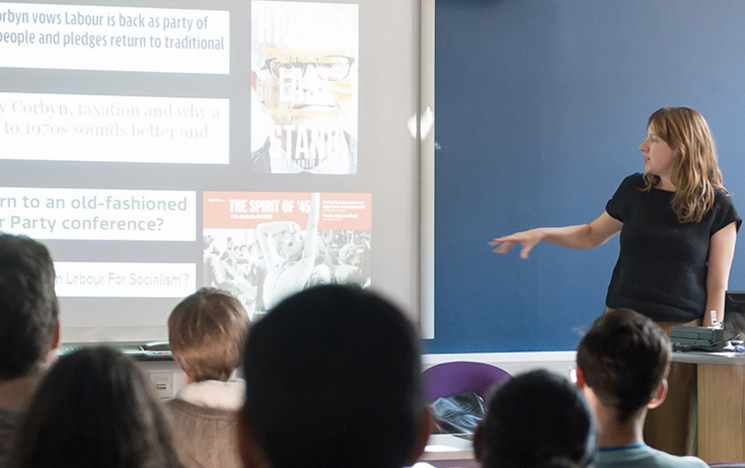Politics
Study at a university ranked in the Top 5 in the UK for best political scene. Browse our politics modules below, and if you're unsure what to study, follow our top tips for how to choose a module.

Browse our modules
You can see our full list of politics modules below.
Year 1
Year 2
- Autumn Semester
-
Spring Semester
- Capitalism and its Critics
- Communicating Politics
- The Far Right and the Politics of Immigration
- Political Systems and Issues: Contesting Authoritarianism
- Political Systems and Issues: The European Union
- Political Systems & Issues: Feminism and the Politics of Gender
- Political Systems and Issues: Germany
- Political Systems and Issues: India
- Political Systems and Issues: Ireland
- Political Systems and Issues: Italian Politics and Society
- Political Systems and Issues: USA
Year 3
-
Autumn Semester
- Authoritarianism and its Critics
- Environmental Politics in the Anthropocene
- Global Crisis and European Political Economy
- Politics from Below: Cooperation, Conflict and Resistance
- Political Change: Political Parties and Party Systems
- Political Change: India
- Political Change: The Politics of Euroscepticism
- Political Psychology
- Political Change: The Rise of Anti-politics
- Spring Semester
Not sure how to choose?
Follow our top tips for choosing your modules. You can also find out about our teaching structure, assessment process and how your credits transfer back to your home institution.
Find out more.
Which school will I study in?
You'll study in the Department of Politics which is part of the School of Law, Politics and Sociology.
The politics department is home to Europe's first Centre for the study of corruption.
Find out more.
Our politics research
Our researchers are exploring topics such as the unequal allocation of power at cabinet level in governments and how to tackle corruption around the world.
Our research influences the way we teach, and you learn from academics at the forefront of their fields.
Find out more.
Contact us
If you are studying at Sussex for a semester or year and have questions, email sussexabroad@sussex.ac.uk.
*(Which? University 2019) **Dependent on module/s studied ***(Our campus is nine minutes by train from Brighton & Hove) survey by accommodation providers Student Living by Sodexo. Rankings based on full undergraduate degree at Sussex.